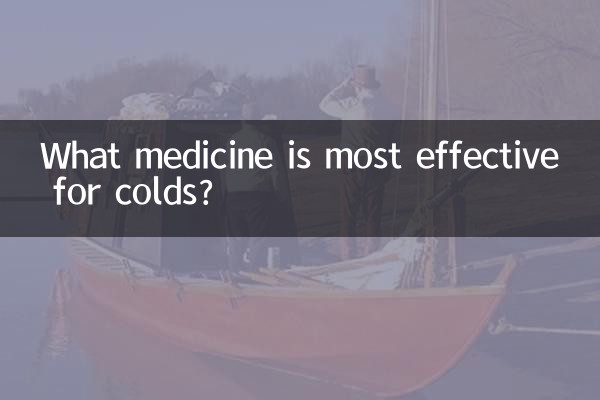What medicine is most effective for colds?
Colds are common respiratory diseases, mainly caused by viral infections. Although colds usually resolve on their own within 7-10 days, proper medication can relieve symptoms and improve comfort. The following is a compilation of hot topics and hot content about cold medicines in the past 10 days across the Internet to help you understand how to choose the most effective medicines.
1. Common symptoms of colds

Cold symptoms vary from person to person, but usually include the following:
| symptom | describe |
|---|---|
| nasal congestion | Nasal congestion and difficulty breathing |
| runny nose | Increased nasal discharge, which may be watery or thick |
| sore throat | Throat pain or discomfort |
| cough | Dry cough or phlegm |
| Headache | Dull pain in head |
| fever | Mild increase in body temperature, usually no more than 38.5°C |
2. Recommended cold medicines
Depending on the symptoms, you can choose the following medications to relieve discomfort:
| symptom | Recommended medicine | effect |
|---|---|---|
| Nasal congestion, runny nose | Pseudoephedrine, chlorpheniramine | Shrink nasal blood vessels and reduce nasal mucus secretion |
| sore throat | Ibuprofen, acetaminophen | Relieve pain and reduce inflammation |
| cough | Dextromethorphan, Guaifenesin | Antitussive or expectorant |
| fever | Acetaminophen, ibuprofen | Reduce fever and relieve pain |
| Syndrome | Compound cold medicine (such as Tylenol, White Plus Black) | Relieve many symptoms |
3. Medication precautions
1.Avoid duplication of medications: Many combination cold medicines contain the same ingredients (such as acetaminophen), and taking them together may cause an overdose.
2.Use with caution in children and pregnant women: Some cold medicines are not suitable for children or pregnant women and should be used under the guidance of a doctor.
3.Drink more water and rest more: Medications can only relieve symptoms, and adequate rest and fluid intake can help with recovery.
4.Be wary of antibiotic abuse: Colds are usually caused by viruses, and antibiotics are ineffective against viruses unless combined with bacterial infection.
4. Natural therapy assistance
In addition to medications, the following natural remedies can also help relieve cold symptoms:
| method | effect |
|---|---|
| honey water | Relieve sore throat and cough |
| ginger tea | Dispel cold and relieve nasal congestion |
| steam inhalation | Relieve stuffy nose and dry throat |
| Vitamin C | Enhance immunity and shorten the course of disease |
5. When do you need medical treatment?
If the following situations occur, it is recommended to seek medical treatment promptly:
1. High fever that persists (body temperature exceeds 39°C);
2. Symptoms persist for more than 10 days without relief;
3. Difficulty breathing or chest pain;
4. Coughing up blood or yellow thick sputum;
5. Severe headache or stiff neck.
Summarize
Cold medicines need to be chosen based on symptoms, and symptomatic treatment is the key. Compound cold medicines are suitable for a variety of symptoms, but you need to pay attention to the ingredients to avoid overdose. Natural therapies can be used as an auxiliary method, but severe symptoms should prompt medical treatment. Maintaining a healthy lifestyle and enhancing immunity are the fundamental ways to prevent colds.

check the details

check the details